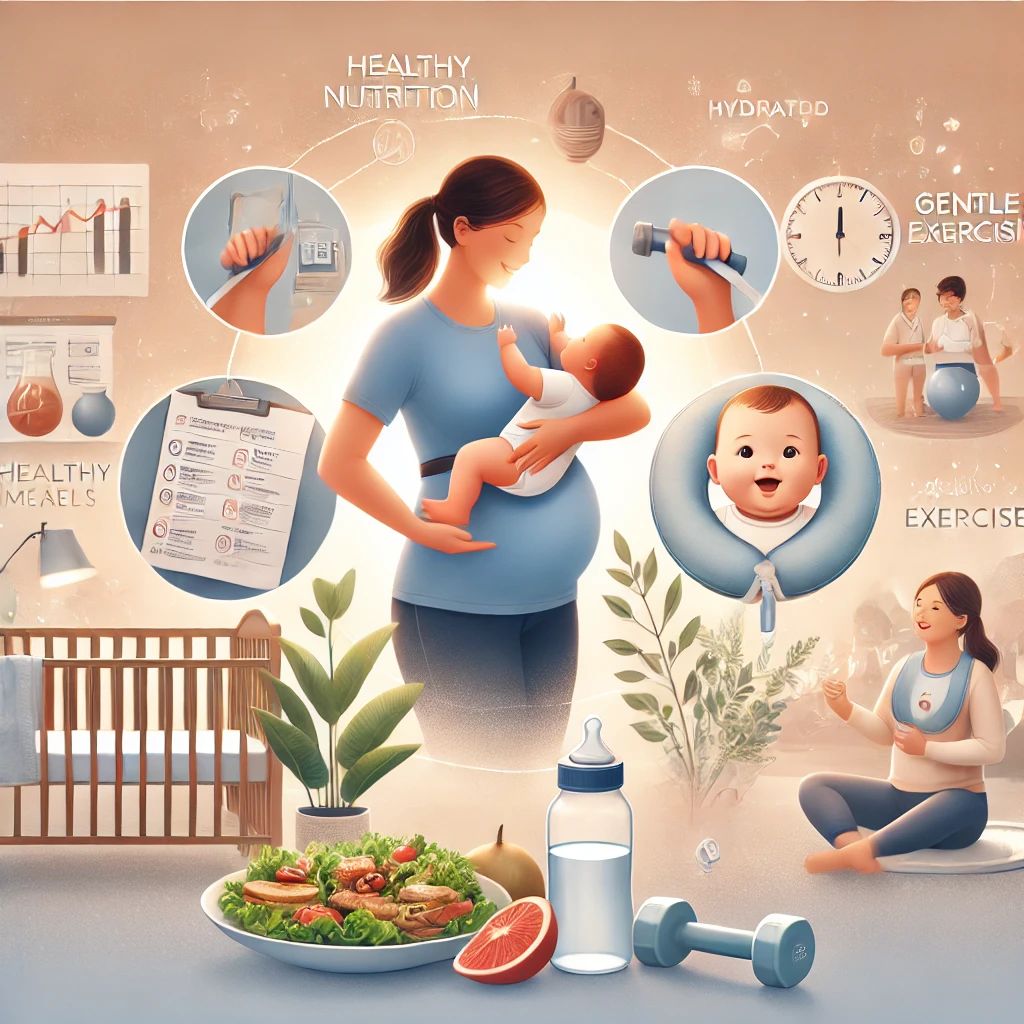
The Connection Between Breastfeeding and Weight Loss
Breastfeeding is often associated with natural postpartum weight loss, as it helps burn extra calories. When you breastfeed, your body uses stored fat to produce milk, which can aid in shedding pregnancy weight. On average, breastfeeding can burn 300-500 calories per day, depending on the frequency and duration of feeding.
However, it's important to approach postpartum weight loss with caution, ensuring that both you and your baby are getting the necessary nutrients to stay healthy.
Prioritizing Nutrition Over Rapid Weight Loss
While many women may be eager to lose weight after giving birth, it’s crucial to prioritize your nutrition while breastfeeding. Your body needs extra energy to produce milk and support your baby’s growth. Trying to lose weight too quickly can negatively affect your milk supply and overall well-being.
Instead of following restrictive diets, focus on nutrient-dense foods that fuel your body and promote gradual, healthy weight loss:
Stay Hydrated
Hydration is critical while breastfeeding. Drinking plenty of water helps maintain milk production and supports your body's metabolic functions. Aim to drink at least 8-10 glasses of water daily, and consider hydrating foods like watermelon, cucumbers, and soups. Dehydration can not only affect milk supply but also hinder your weight loss efforts by making you feel fatigued or hungry.
How to Safely Lose Weight While Breastfeeding
Postpartum weight loss doesn’t have to be a race. Here are a few tips to lose weight safely without compromising your milk supply or energy levels:
- Wait a few months before starting: Give your body at least 6-8 weeks after birth to recover before focusing on weight loss. This allows your body to heal and adjust to breastfeeding.
- Start slow: Aim to lose about 1-2 pounds per week, which is a safe and sustainable pace for breastfeeding moms.
- Incorporate exercise gradually: Light exercises like walking or postnatal yoga can help tone muscles and boost energy. Once cleared by your doctor, you can introduce strength training or more intense cardio.
- Don’t skip meals: Eating regular, balanced meals is key to maintaining energy and milk supply. Skipping meals can lead to cravings and overeating later on, disrupting your progress.
Recognizing the Role of Hormones
Postpartum hormones can play a major role in both breastfeeding and weight loss. For some women, the body may hold onto fat stores as part of its natural process to ensure there’s enough energy for milk production. It’s also common to experience fluctuations in energy levels and appetite as your hormones rebalance.
Patience is important during this time, as your body may take longer to lose weight than you expected. Focus on consistent, healthy habits rather than dramatic changes.
Finding a Balance Between Self-Care and Weight Loss
It’s easy to feel pressure to “bounce back” after pregnancy, but it’s important to remember that your body has just gone through a major transformation. Self-care and rest are just as important as physical activity and diet. Allow yourself time to adjust, and prioritize self-compassion throughout your weight loss journey. Listen to your body’s signals for rest and nourishment.
Incorporating practices like mindfulness or short meditation sessions can help manage stress, which is key to both milk production and weight loss. High stress levels can negatively impact both.
When to Seek Professional Help
If you find that you’re struggling to lose weight while breastfeeding or if your weight loss efforts seem to affect your milk supply, it may be helpful to consult a healthcare professional or a nutritionist. They can provide personalized advice and ensure that your weight loss approach supports both your health and your baby’s needs.
Conclusion: Patience and Balance Are Key
Breastfeeding can support postpartum weight loss, but it’s important to approach the process with patience and care. Focus on nourishing your body with nutrient-dense foods, staying hydrated, and incorporating gentle exercise. Gradual, consistent progress will help you lose weight safely while maintaining your milk supply and energy levels. Above all, remember that taking care of yourself is just as important as taking care of your baby.


